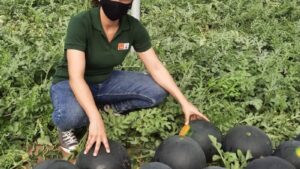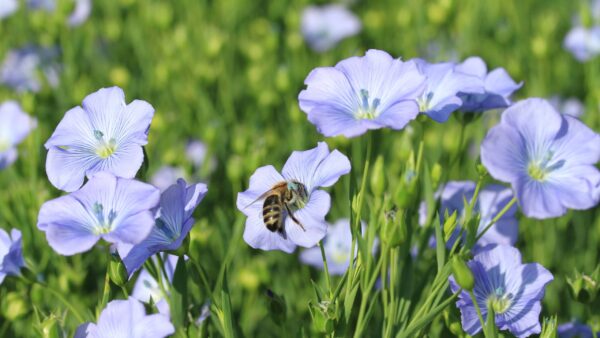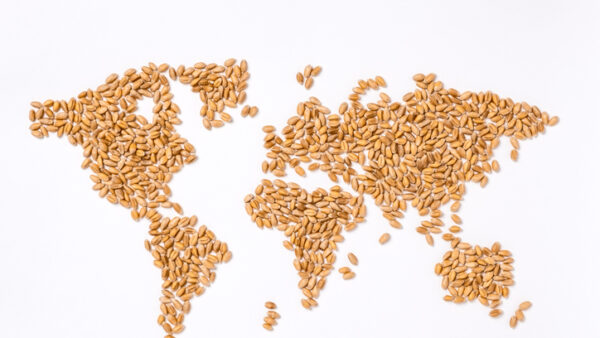The Farm-to-Fork Strategy (F2F) of the Green Deal, presented by the European Commission in May 2020 triggered a wide range of responses. “It is a move back in time”; “finally policy attention to sustainability”; “the goals are impossible”; “it doesn’t provide a sustainable business model for farmers”; “this transition is unrealistic in such a short time”, etcetera.
Also among breeders, different reactions could be heard. A broadly shared one is that we see ourselves (together with the fertilizer and agrochemical industries) as the originators of modern agriculture and as such as the caretakers of global food security. F2F challenges the yield paradigm and thus hits us in our heart. Our seeds of uniform varieties supported mechanization; by changing the growth habit of plants we made them more responsive to higher soil fertility; by making crops more resistant to pests and diseases we contribute to yield stability and product quality. That is all true and we can be proud of it. However, when policy makers have a vision to replace such modern high-input agriculture with more ‘organic’, ‘agro-ecologic’ or other ‘ics’ that they consider more environmentally sustainable, are we the ones to oppose such a Brave New European agriculture or should we spend our energy to capture the opportunities that these policies bring?
Yes, we are a very knowledgeable sector, and we can assess a range of dilemmas within the F2F Strategy. Reducing soil fertility levels necessarily goes hand in hand with reduced output of the major crops and so will more space for protein crops and plant based industrial raw materials, more organics, and more space for nature. Reducing chemical crop protection before suitable alternatives are available leads to yield and quality losses as well. The F2F Strategy also wants nutritious food to be affordable for all; how to do that with output reduction and stiff conditions for imports? Yes, we can bring forward these dilemmas, but it is up to politicians to weigh the available policy options.
We have been very good at serving the diverse farming systems in Europe and beyond with good seed – specific varieties for particular uses, soil and climatic conditions, and markets. Compared to 50 years ago we are much better at targeting our customers more precisely, which also translates in the increased genetic diversity among varieties that we supply. The new policy is likely to make farming systems to diverge even more. Will it favour breeders when the demands on varietal characteristics become more diverse or is it merely a headache and a cost to market a wider product mix? In the end, we will remain the seed suppliers!
Now that these policies get clearer, they are necessarily part of the breeder’s strategic reality. Should we give more emphasis on selecting the very best varieties for lower soil fertility? What is resilience under climate change; should we look more into root architecture? And put more emphasis on resistances against diseases, even though we hardly see them because chemicals currently control them? “If we had known that neonics would be gone so quickly we wouldn’t have put the resistance breeding against yellowing on ice”, a sugar beet breeder told me. There is a fair chance that such questions will become more explicit, for example in new VCU criteria. In that case, it is better to get started soon!
In addition, similar for the seed producer: every year the demand for organically produced seed has to be estimated for the next couple of years. Where to find seed growers who can produce well under organic conditions? How to avoid over-production? Will it become (or remain) a commercially interesting market? Will policy makers realise in time that also organic farmers need the guarantees on seed quality and identity that conventional farmers are so used to? And that breeders need to be rewarded for their work?
All in all, the Green Deal will give some headaches, but will also provide opportunities for those breeders and seedsmen who predict the changes in farmers’ needs best, and act upon them most effectively. As with any other strategic decision, these are fraught with uncertainties and risks. The bottom line is though that the more complex farming becomes, the more important a good start is – with the right seed! Such seed will contain more and more value and should cost a bit more too. Every farmer needs good seed – and we have the capacity to provide them with it. We should continue to consider ourselves the originators and guardians of modern agriculture, but when the meaning of ‘modern’ changes we need to redirect some of our actions and avoid forcing ourselves in the defence. There will be no Green Deal without the seed sector.












